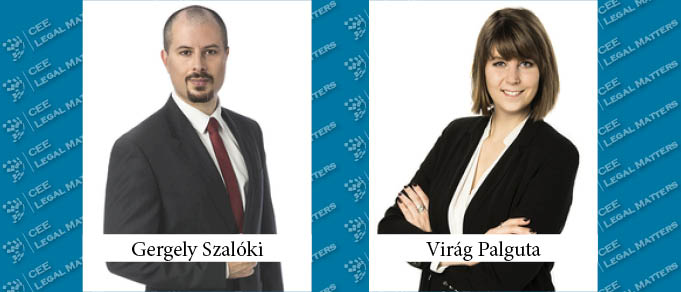Crowdfunding is a type of intermediation where the service provider operates a platform (e.g. website) open to the public. The purpose of that platform is to match enterprises seeking financing with prospective investors. The enterprises typically receive small amounts of money from many investors (usually natural persons), via lending (lending-based crowdfunding) or investment into shares (investment-based crowdfunding). Some of the best-known crowdfunding platforms are Kickstarter or Indiegogo. By introducing a single European regulatory framework, the uncertain Hungarian legal environment might change, potentially giving a boost to the crowdfunding market.
The Hungarian legislator recently harmonised the national laws to comply with Regulation (EU) 2020/1503 of the European Parliament and of the Council. The goal is to establish a single regulation on crowdfunding within the European Union, thus facilitating cross-border crowdfunding services.
Single European regulation
Previously, there was no uniform regulation on crowdfunding at the EU level. The existing rules vary between different Member States. Some have introduced a separate regulatory framework for crowdfunding, while others (like Hungary) assess such activity pursuant to the existing rules. As a result, the national rules differ to such a degree that the cross-border provision of crowdfunding services is obstructed. Nevertheless, crowdfunding is an increasingly established form of alternative financing for start-ups and SMEs. The regulation establishes a uniform regulatory framework for crowdfunding services, aiming to facilitate cross-border provision of services (and cross-border investments) and eventually the free movement of capital.
The regulation is applicable from 10 November 2021. It covers crowdfunding services involving only enterprises (i.e. not consumers) seeking financing of up to EUR 5m. The regulation covers both lending-based and investment-based crowdfunding.
Authorisation is mandatory
The regulation aims to introduce uniform, proportionate and directly applicable requirements for crowdfunding service providers (i.e. platform operators). Pursuant to the regulation, crowdfunding service providers must obtain authorisation from the supervisory authority of the Member State where the service provider is established. To obtain it, the service provider must comply with a number of conditions (e.g. have internal policies and internal procedures complying with professional requirements). The European Securities and Markets Authority (ESMA) maintains a register of all crowdfunding service providers.
Once the crowdfunding service provider has obtained the authorisation, it does not need to obtain further authorisations from other Member States to provide cross-border services. By notifying its supervisory authority, the service provider may provide its crowdfunding services to other Member States on a cross-border basis.
Investor protection
The regulation further aims to ensure a high level of investor protection. It therefore distinguishes between sophisticated and non-sophisticated investors and introduces stricter rules for the latter. Crowdfunding service providers are required to run an entry knowledge test of non-sophisticated investors to ascertain their understanding of the investment. In addition, crowdfunding service providers are required to issue risk warnings. A reflection period must be ensured for non-sophisticated investors during which they may revoke their offer to invest without stating a reason or being penalised. Conversely, an entry knowledge test and risk warnings are not required in the case of sophisticated investors.
To ensure a high level of investor protection, the regulation requires enterprises seeking finance to draw up a key investment information sheet. This document enables investors to make informed investment decisions. Key investment information sheets do not require supervisory approval.
The Hungarian regulatory environment
Hungarian law does not contain any rules on crowdfunding, meaning it is assessed pursuant to the existing rules. The Hungarian National Bank did conclude that certain elements of crowdfunding may require authorisation. For example, in the case of lending-based crowdfunding, the investor's activity may be deemed a lending activity, which requires authorisation. In such a scenario, the platform operator is deemed an agent of the investor (which also requires authorisation or notification). Plus, in certain cases the Hungarian National Bank regarded the activity of the enterprise seeking finance as collecting deposits from the public, which requires authorisation as well. In that case, the platform's operator will be the agent of the enterprise. Since investors are typically natural persons and enterprises are SMEs or start-ups, complying with the necessary requirements for the authorisation is not possible for them. This strict interpretation undermined the crowdfunding market in Hungary.
With the application of the regulation, the above practice will be replaced by a single European regulation. Since the regulation introduces a completely new regulatory regime that is directly applicable, only a small number of changes were necessary in the Hungarian rules. Crowdfunding falls under the scope of the Hungarian Capital Markets Act, which sets forth liability rules and the supervisory competence of the Hungarian National Bank. The Hungarian rules derogate from the EUR 5m threshold of the regulation for a limited time and apply a EUR 1m threshold until 10 November 2023.
What the future holds
Due to the new regulatory framework, the crowdfunding market will probably boom within the European Union, particularly cross-border crowdfunding. This also means that there will be a completely new basis to the regulatory requirements in Hungary. The Hungarian market will likely heat up as well, since market participants that were scared away by the regulatory environment will now easily access the Hungarian market with their authorisation obtained in another Member State.
By Gergely Szaloki, Partner, and Virag Palguta, Attorney at Law, Schoenherr


